By Aman Ali
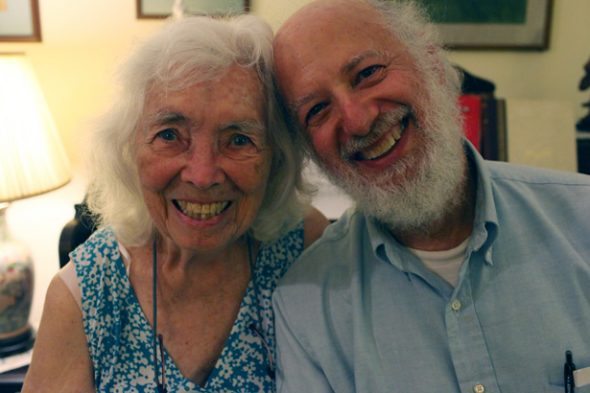
Chip Ordman is a reform Jew and his wife Eunice is a Christian. The couple attend mosques in Memphis 2-3 times a month for Friday prayers, potluck dinners and other events.
“The more people get to know each other, the more they’ll get along,” Eunice said.
I first met Chip in April this year for a standup show I did for the Memphis Islamic Center, a ridiculously awesome mosque being built here that we’ll talk about in a coming post. The Ordmans are a part of the Memphis InterReligious Group that encourage Muslims, Christians and Jews to hang out with each other and attend each other’s services. I’ve done a lot of traveling across the country and I’ve never seen an interfaith community like Memphis where a guy like Chip comes to mosques for Friday prayers and chat about the khutbah sermons afterwards with congregants.
“When it comes to visiting mosques, churches and synagogues, I often find that questions I have about one religion are answered by another,” he said.
Chip and Eunice met us to break our fast at the Muslim Society of Memphis, a simple mosque packed with congregants. He was wearing a north African Jewish yarmulke that I initially mistook for a kufi, a hat Muslim men often wear during prayer. Seeing him at the mosque with his hat and fluffy cotton beard made him blend in with just about everyone there.
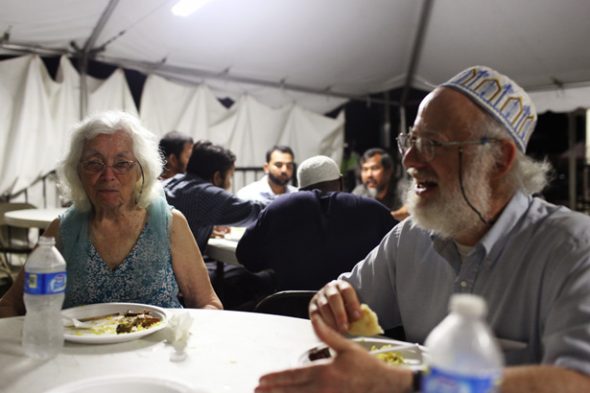
After dinner, the Ordmans invite us into their home nearby. Their home is actually two condos they combined – one to live in and another to host interfaith gatherings in. Chip’s a goofy guy that loves to tell whacky stories about him and his wife’s travels around the world and points to many of the global souvenirs around the house that they’ve collected.
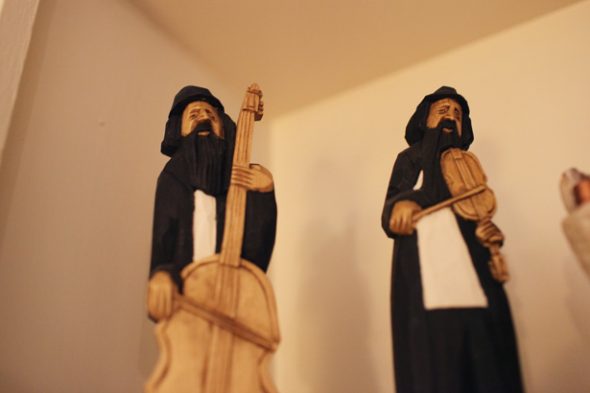


Chip and I begin talking about religious attire and he’s quick to pull out several items that many orthodox Jews wear during their regular morning prayers.
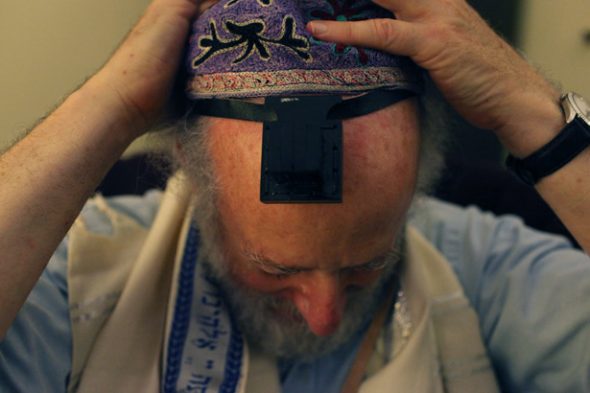
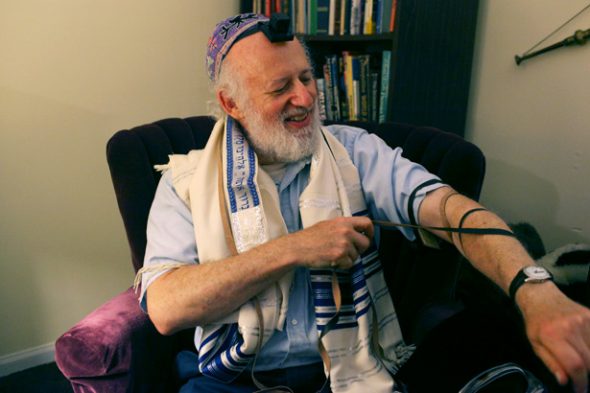
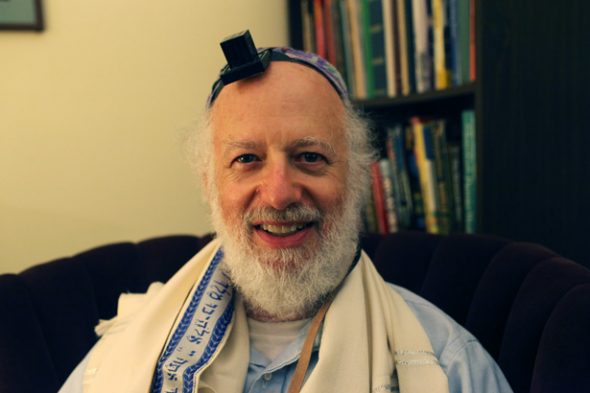
The Ordmans are actively concerned with the Israeli Palestinian peace issue and regularly got involved in the Muslim community here about 2-3 years ago. At the time, a group of Israelis crashed a peaceful pro-Palestine rally and sprayed protesters with tear gas. In 2008, the Muslim community in Memphis honored the couple with an award that Eunice proudly pulled out of her cloth bag during our conversation with her.
I asked the Ordmans how they’ve been received by Muslims as they regularly frequent Islamic events. Chip said he’s been received well but Eunice said she couldn’t say the same.
“Many of the women here will criticize me because I have a few stands of hair showing from my headscarf,” she said. “I’ll be sitting in a chair to the side of the room while they’re praying so clearly they know that I’m not Muslim.”
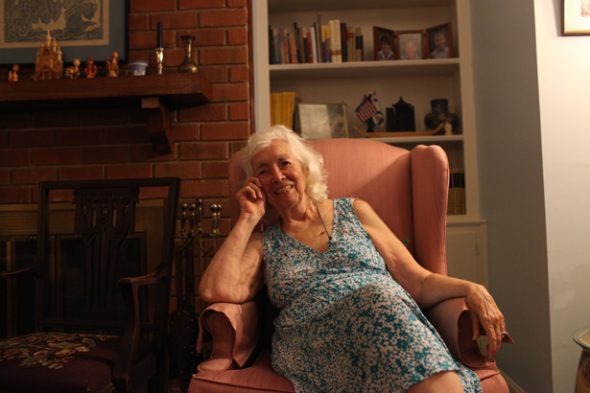
What I admire about the Ordmans is their passion for building interfaith relations in the community. But all religions embracing each other here is a common trait here, according to one of my friends Danish who lives here.
“The Christians here are very welcoming of Muslims because they actually adhere to what they believe,” he said.
It’s hard to believe, only a few hours away in Murfreesboro, a small town outside of Nashville, a national spotlight has been placed on those Muslims’ struggle to build a mosque amidst community opposition. But Murfreesboro isn’t the only community dealing with mosque opposition in this country, so I asked Chip how Muslims can avoid it.
“Before you build a mosque, you need to start by listening,” he said. “Go out into the community and make clear to everyone that you just want to listen.”
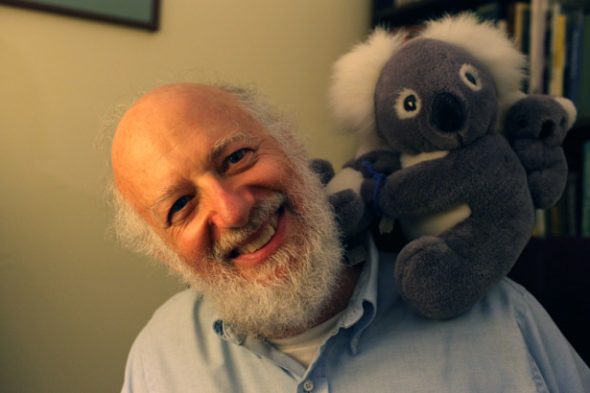
I admire the Ordman’s wholehearted and sincere interest in hanging out with Muslims here in Memphis. I ask him if he thinks Muslims here reciprocate that interest and hang out in churches and temples.
“They do, but I’d like to see more,” he said. “But I understand, many Muslims might feel a little nervous coming to a church because they might not understand the theology. But what I’d like to see is a mosque calling up a church and saying ‘Hi, we’d like to send one of our youth groups to attend one of your church services.”
With all the time the Ordmans spend at mosques, I have to ask if any Muslims have tried to convert them. Chip lets out a chuckle and responds.
“I’m quite happy with my tribe,” he said. “There’s so much mutual understanding and interfaith work that needs to be done. I feel like converting would disqualify myself from doing that.”
Chip is 65 and Eunice is 86. The two married in the 1980s and their chemistry is unmistakable. In just about every conversation, Chip would begin by saying something and Eunice would segway right in and finish his sentence. I love speaking to happy older couples and always have to ask what’s their secret.
“Instead of compromising, in a marriage you each have to give 100 percent,” she said as she grasped her husband’s hand.
Go ahead and say it, “Awwwww.”
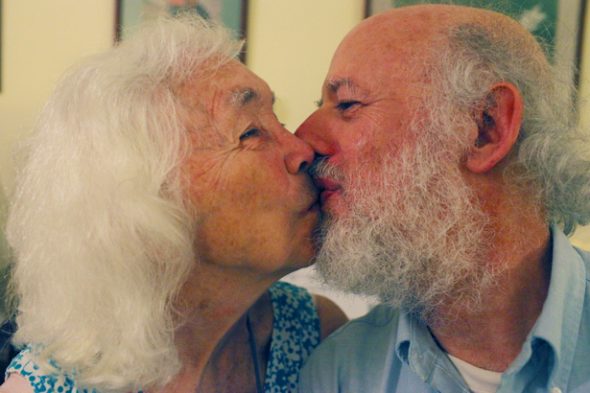
My wife and I have really enjoyed both the original post and the comments. Is this a good place to continue some discussions, or can people suggest another site? For example, I had to go look up “shirk” to understand some of the remarks. By way of illustration, I’m Jewish; I’m comfortable praying in a mosque or a church, but I do not kneel in churches. I’m uncomfortable with some Christian language of the “Jesus is God” variety and much more comfortable with much of their other language, discussing the various ways in which the One God expresses himself or is perceived by humans: no one thinks that the 99 Names of Allah are 99 different Gods, and I am inclined to think of the three terms the Christians use in much the same way. I am comfortable kneeling in mosques, but many Jews are not, because of family stories dating back to times and places where a Jew did not dare be mistaken for a Muslim, for fear of later being accused of apostasy by a Muslim ruler (even at times when Jews who were clearly identified as Jews were treated quite well.)
In my grandparent’s day, and even when my parents were young, many Christian Americans were as uncomfortable with or hostile to Jews as they are to Muslims today (and the hostility was more socially and legally acceptable). By now, they are more comfortable, although not 100 percent. One reason is that by now many Jews have visited churches, and many Christians have visited synagogues; the other group is better understood. I look forward to the day when enough Muslims are comfortable visiting a friend’s church or synagogue, and enough Jews and Christians are comfortable visiting a friend’s mosque, that more Americans regard Islam as something understood and more compatible wioth their own beliefs.
But as I was quoted above, the way to start a dialogue is to first show you can listen. Ask a friend to take you to their church or synagogue, their Sunday School class, ask questions. Not all of them, but enough of them, will respond by asking you questions about Islam or visiting the mosque or a dawah class with you.
Chip Ordman